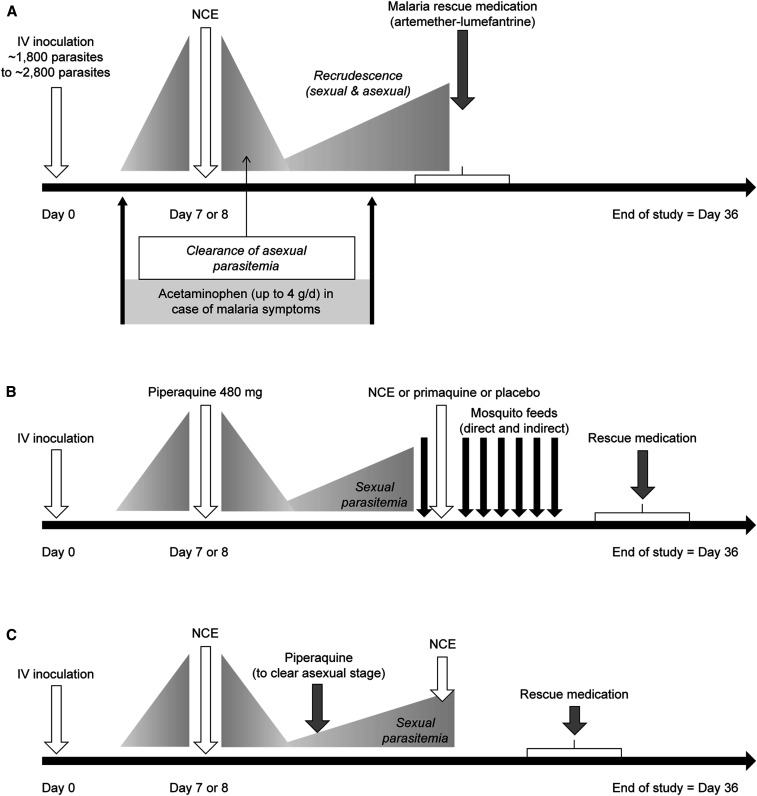Figure 1.
General method for induced blood-stage malaria studies. (A) Malaria infection is induced with an intravenous (IV) inoculum of parasitized erythrocytes. After 7–8 days, experimental treatment is given, and if recrudescence occurs, rescue therapy is given. (B) The system can be adapted to test for anti-gametocyte activity by administration of piperaquine before the new chemical entity (NCE) to enrich for gametocytes and remove blood-stage parasites; transmission blocking activity can also be tested via membrane feeding assays. (C) A combined experiment tests the NCE against blood-stage parasites at a subtherapeutic dose, then primaquine is given at recrudescence, followed by the NCE to test for anti-gametocyte activity.

